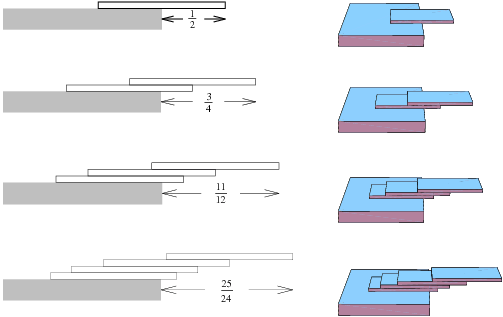21
2
Story
So I have a book that I want to separate from my table with nothing but other books. I want to know how many books do I need to achieve this with \$n\$ book lengths.
Here's a visualization that my friend at Wolfram drew for me:

More information about the topic in Wolfram and Wikipedia.
Challenge
Given an integer input \$n\$, output how many books needed for the top book to be \$n\$ book length away from the table horizontally.
or
Find the smallest integer value of \$m\$ for input \$n\$ in the following inequality.
$$\sum_{i=1}^{m}\frac{1}{2i} \geq n$$
Edit: for fractions use at least a IEEE single-precision floating point. sorry for editing challenge after posting
Test cases
1 4
2 31
3 227
5 12367
10 272400600
1https://www.youtube.com/watch?v=pBYPXsGka74 <-- related – streetster – 2018-01-27T16:24:43.740
Does it have to be using this particular arrangement of books, which IIRC is not optimal? – user253751 – 2018-02-05T03:46:04.283